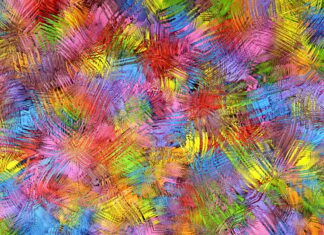Panthenol, also known as Provitamin B5 or Dexpanthenol, is a vital compound that has garnered significant attention in the fields of cosmetics, pharmaceuticals, and personal care products. With a molecular formula of C9H19NO4, Panthenol belongs to the family of B-vitamins, playing a crucial role in the synthesis of coenzyme A and acyl carrier protein. It has been extensively used in various skincare and haircare formulations due to its remarkable moisturizing and healing properties. Panthenol’s three hydroxyl groups make it exceptionally water-soluble, enabling easy incorporation into a wide range of products, ranging from lotions and creams to shampoos and conditioners.
In recent years, the popularity of Panthenol has surged, thanks to its exceptional versatility and benefits for both skin and hair. As a humectant, it attracts and retains moisture, helping to maintain optimal hydration levels in the epidermis. Furthermore, its ability to improve skin barrier function has led to its inclusion in formulations designed to combat dry, flaky skin. When used in hair care products, Panthenol penetrates the hair shaft, binding to the keratin, and forming a thin film. This film imparts smoothness and shine, making it an ideal ingredient for conditioners and leave-in treatments. Moreover, Panthenol’s ability to repair and strengthen hair has made it a go-to choice for those seeking healthier and more resilient locks.
The history of Panthenol dates back to the early 20th century when it was first synthesized by Swiss chemist Konrad W. Buehler. However, its full potential and application in various industries were not immediately recognized. It wasn’t until the mid-20th century that the pharmaceutical and cosmetic industries started exploring its benefits more extensively. Today, Panthenol is widely used across the globe, finding its way into an array of products, ranging from skin lotions and ointments to wound healing formulations.
One of the most remarkable aspects of Panthenol is its ability to soothe and promote skin healing. When applied topically, it gets converted to Pantothenic Acid (Vitamin B5) by the enzyme pantetheinase, which is naturally present in the skin. Pantothenic Acid is an essential component of coenzyme A, which is crucial for various metabolic reactions in the body. As a result, when Panthenol is used in skincare products, it aids in the regeneration of skin cells and helps accelerate wound healing processes. This makes it a popular choice in products designed to treat sunburns, minor cuts, and skin irritations.
In addition to its skin benefits, Panthenol has also demonstrated its efficacy in improving hair health. By penetrating the hair shaft, it enhances moisture retention and flexibility, reducing the chances of breakage and split ends. Furthermore, this versatile compound creates a thin film on the hair surface, acting as a protective barrier against environmental damage and styling stressors. For individuals struggling with dry, brittle hair, Panthenol-infused hair care products can provide much-needed nourishment and vitality.
Due to its non-irritating and hypoallergenic nature, Panthenol has gained significant popularity in the formulation of baby products. Baby lotions, creams, and diaper rash ointments often feature this ingredient, as it helps soothe delicate skin and prevent moisture loss. Furthermore, its mild and gentle properties make it suitable for use on sensitive skin, providing relief to those prone to eczema and other skin conditions.
Apart from its topical applications, Panthenol has also found a place in oral health products. It is utilized in toothpaste and mouthwash formulations due to its ability to promote healthy gums and oral tissues. Studies have shown that Panthenol can support the repair of oral mucosa and reduce the risk of inflammation and infection. Its inclusion in oral care products not only enhances their therapeutic effects but also contributes to an overall feeling of freshness and cleanliness after use.
In recent years, Panthenol has also been researched for its potential therapeutic applications beyond cosmetics and personal care. Some studies have explored its role in wound dressings and tissue engineering, as its healing properties make it an intriguing candidate for innovative medical applications. As research in the field of regenerative medicine progresses, Panthenol’s role in promoting tissue repair and regeneration may become even more pronounced.
Panthenol’s stability and compatibility with a wide range of ingredients have further contributed to its widespread use in various formulations. It is known to be heat-stable and remains active even at elevated temperatures, making it suitable for products that require heating during manufacturing. Additionally, it is compatible with other skincare and haircare ingredients, allowing formulators to create sophisticated and effective blends that cater to specific needs.
Panthenol stands as a versatile and indispensable ingredient in the world of cosmetics, pharmaceuticals, and personal care products. Its exceptional moisturizing, healing, and hair-strengthening properties have cemented its place as a go-to component in a vast array of formulations. Whether it’s a soothing lotion, a revitalizing shampoo, or an oral health product, Panthenol’s remarkable attributes continue to benefit individuals worldwide. As scientific research advances, it is likely that new applications and benefits of Panthenol will continue to emerge, solidifying its status as a key player in the quest for healthier skin, hair, and overall well-being.
In conclusion, Panthenol, also known as Provitamin B5 or Dexpanthenol, is a remarkable and versatile compound with widespread applications in cosmetics, pharmaceuticals, and personal care products. Its exceptional moisturizing, healing, and hair-strengthening properties have made it a highly sought-after ingredient in a variety of formulations. As a humectant, it attracts and retains moisture, promoting optimal hydration for the skin. Moreover, its conversion to Pantothenic Acid aids in skin cell regeneration and accelerates wound healing processes. In hair care, Panthenol’s ability to penetrate the hair shaft, enhance moisture retention, and form a protective barrier has proven beneficial for improving hair health and reducing damage. Its hypoallergenic nature and compatibility with other ingredients make it suitable for use in products designed for sensitive skin and oral health. Furthermore, ongoing research hints at potential future therapeutic applications in wound dressings and tissue engineering. With its stability and compatibility, Panthenol continues to play a vital role in formulating innovative products that contribute to healthier skin, hair, and overall well-being.






















